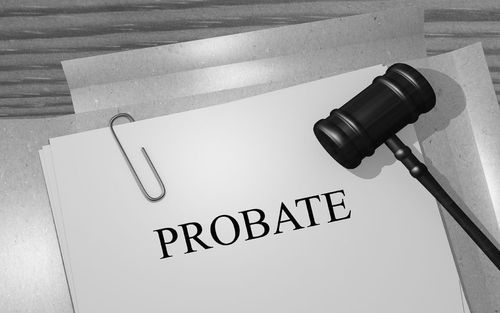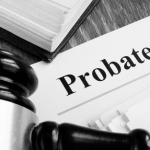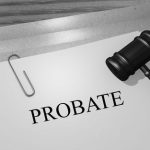Probating An Estate: Where To Begin
If you’ve lost someone, you know it is a stressful time. On top of the grieving process, you may also be expected to handle the probate. Probate is the process of passing property from a deceased person to a living person. If you are wondering where you begin, then this article is meant for you.
The first and most important step is to call us or another law firm with a probate department. The probate process is too difficult to navigate without the assistance of legal counsel. The legal costs associated with fixing probate is much, much more than if it had been done correctly in the first place. You may also expose yourself to personal liability if you do not probate an estate correctly. We consider this first phone call an initial consultation. If you don’t hire us, then we don’t charge you for it.
In the initial consultation, we will ask you several questions in order to find out what needs to be done. The following is a sampling of questions we will likely ask you. We also offer some recommendations to make the process as smooth as possible.
Question 1: Who Is Involved?
We need to know all potential heirs, personal representatives, trustees, and any other person involved. We need this information for a couple of reasons. First, we need to run a conflict check to make sure we don’t represent clients with conflicting interests. Second, we’ll likely need this information for sending notices to parties later on.
We recommend you prepare a list of all names, addresses, and phone numbers of those related to the decedent in any way (“Decedent” means the person who has died).
Question 2: What Was Decedent’s State Of Domicile At The Time Of His/Her Death?
“Domicile” means permanent home. A good rule of thumb is a decedent’s domicile is typically the last place he or she filed a state income tax return. We ask this question because the domicile determines who has jurisdiction over the probate. In other words, the domicile determines where we will have to make probate filings if any. Probate costs are different in North Dakota and Minnesota as well, so we need this information to give you estimates of the cost.
Question 3: Did Decedent Leave A Will Or Trust?
If Decedent had a trust and properly funded the trust, you may not need to do a probate at all. If the trust owns all the property, then there’s no property to be probated. Instead, there will need to be a trust administration, which is a different process. We’ll need to know this at the outset.
If the decedent didn’t have a trust or some assets didn’t make it into the trust, then the decedent’s estate administration is either going to be “testate” or “intestate.” If the decedent had a will, then it’s called “testate” and we have a certain set of rules to follow. If the decedent didn’t have a will, then it’s called “intestate” and we have a different set of rules.
We recommend you search for the will and trusts, and get them into a format we can review in connection with our call or appointment.
Question 4: What Did Decedent Own, How Was It Owned, And What Is The Value?
Property is divided into two general types: personal property and real property. Real property is real estate and rights incident to real estate. Personal property is basically everything else. Personal property includes tangible personal property like furniture, vehicles, guns, and jewelry. It also includes intangible personal property like stocks, bonds, cash, and cash equivalents.
We need to know everything decedent owned and how it was owned because this will dictate the probate process. For example, if all property was owned jointly with the right of survivorship or had a payable on death designation, there’s a chance no probate is required. If the decedent owned only personal property and its value are low enough, we may be able to do an affidavit of collection of personal property instead of full probate. Our job is to find the simplest and easiest way to get it done.
We recommend you make a list of all the assets owned and rough values. We understand this very likely will not be complete, but do the best you can. Note that we do not need a detailed list of household furnishings or other personal property with little value. But we will need to know about real estate holdings and any IRAs, 401(k)s, life insurance death benefits, vehicles, and brokerage accounts.
Question 5: What Were Decedent’s Debts?
The probate process requires the collection of all assets and payment of all debts before distributing the remaining assets to heirs. We need to know of all debts.
We recommend you make a list of all debts owed. We understand this very likely will not be complete, either. Again, do the best you can.
What’s Next?
Even if you don’t have the information or can’t follow through with the recommendations, just give us (or another law firm with probate department) a call or set up an appointment. It can be overwhelming if you don’t know the process. Starting is the most important step. Call our Estate Planning Team at 701-297-2890. We’re here to help.










